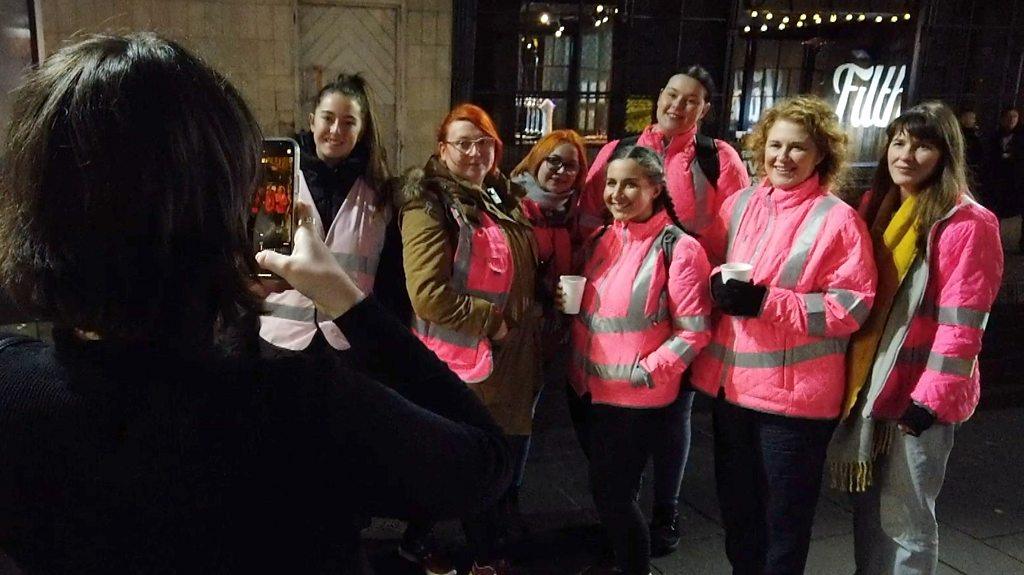Kits that test for spiked drinks given to Newcastle students
- Published
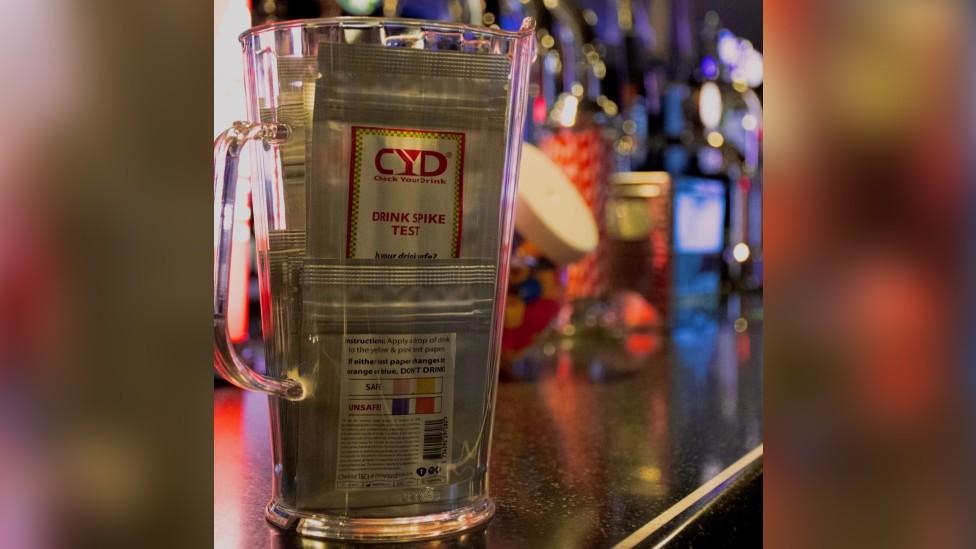
Campaigners say they're providing kits to students who are worried about their drinks being spiked
Free kits are being given out to students to check if their drinks have been spiked.
Newcastle University Students' Union society It Happens Here, Newcastle - which campaigns against sexual violence - is giving out the kits following concerns about spiking across the UK.
When a drop from a drink is put on a patch, the test, which checks for GBH and ketamine, changes colour.
The group's president said students were "very worried" about the issue.
Madeline Baugh said: "It works by dipping a finger or straw in the drink and dropping it on to a test patch, which changes colour if the drink is not safe.
"These were suggested by Newcastle University students and obviously while the kits don't solve or address problems we hope they will make students feel safe."
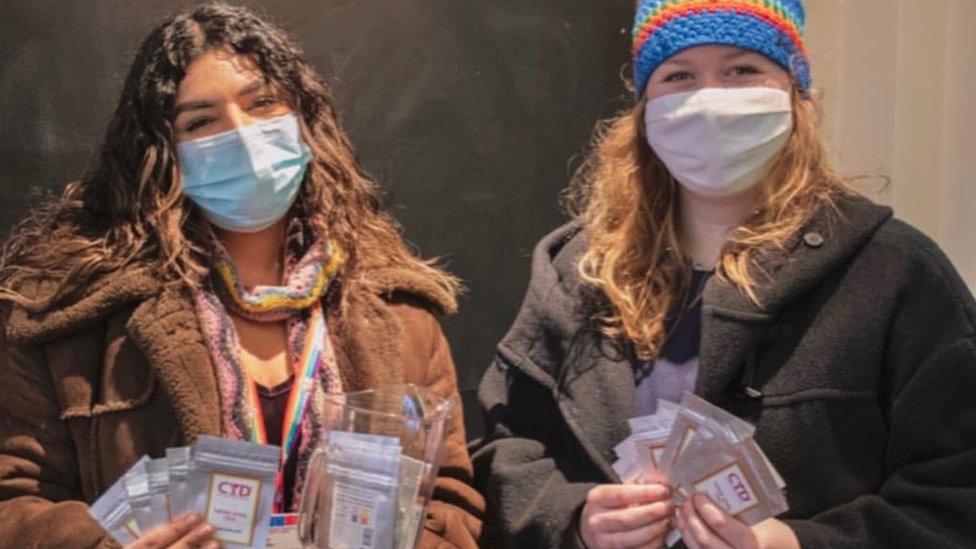
Briana Gordhan (left) and Madeline Baugh (right) from the It Happens Here, Newcastle campaign with the testing kits
Last month Northumbria Police said it was investigating after three women reported being spiked at the same venue during a night out in Sunderland.
Last year saw a spate of reports of women, many of then students, being spiked in bars and nightclubs across the UK which prompted the government to launch an inquiry.
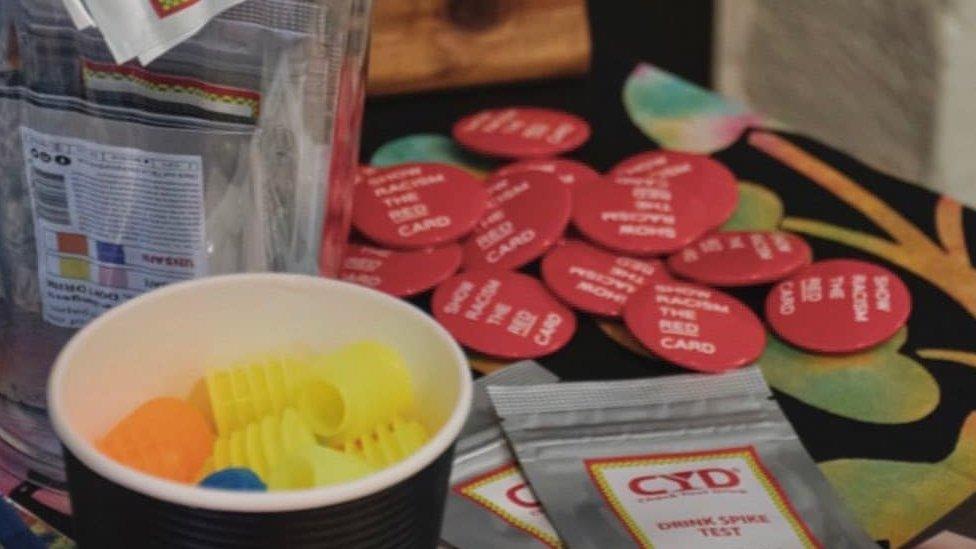
The Newcastle University Students' Union society called It Happens Here, Newcastle says the kits were suggested by students
Statistics published in a YouGov poll in November 2021, external suggested one in nine women and one in 17 men in the UK said they had been the victim of drink spiking.
In the past, spiking has been thought of as substances being put into drinks - but there have been incidences reported recently involving needles.
Ms Baugh added: "No matter how many provisions are in place or how we look after ourselves, we need to address the key problem of changing the culture and acceptance of perpetrators.
"We've all got to recognise the cause is mainly male-gender violence."
Last year a group called Women's Street Watch started patrolling the streets of Newcastle to make sure people stayed safe on nights out.

Follow BBC North East & Cumbria on Twitter, external, Facebook, external and Instagram, external. Send your story ideas to northeastandcumbria@bbc.co.uk, external.
The society is launching a campaign and collecting data about the rates of sexual violence and spiking among students on campus in the coming weeks.
Related topics
- Published22 December 2021
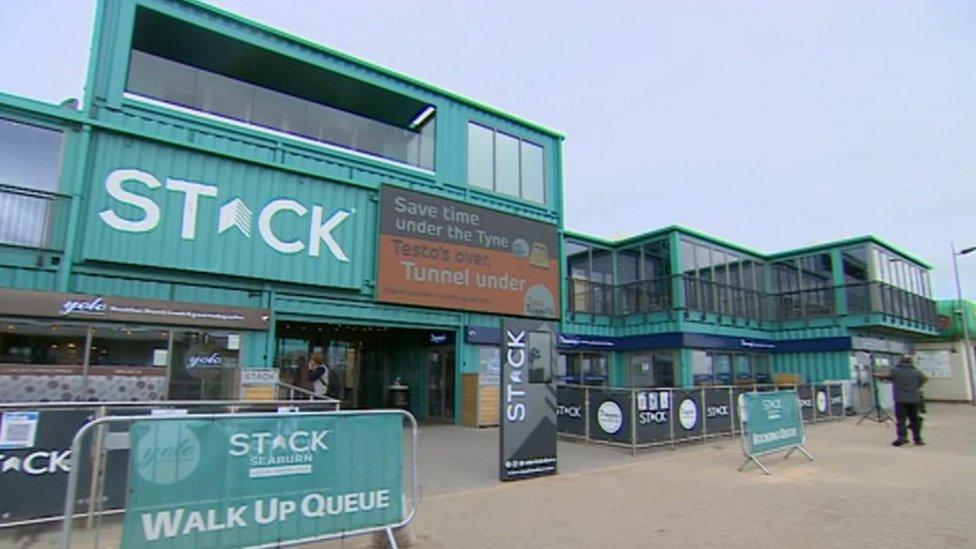
- Published10 December 2021

- Published17 November 2021
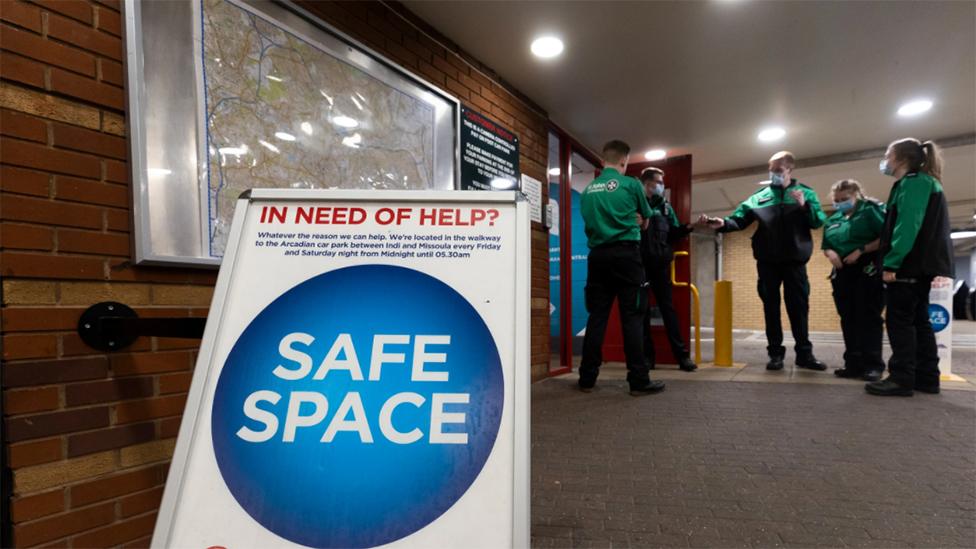
- Published11 November 2021
